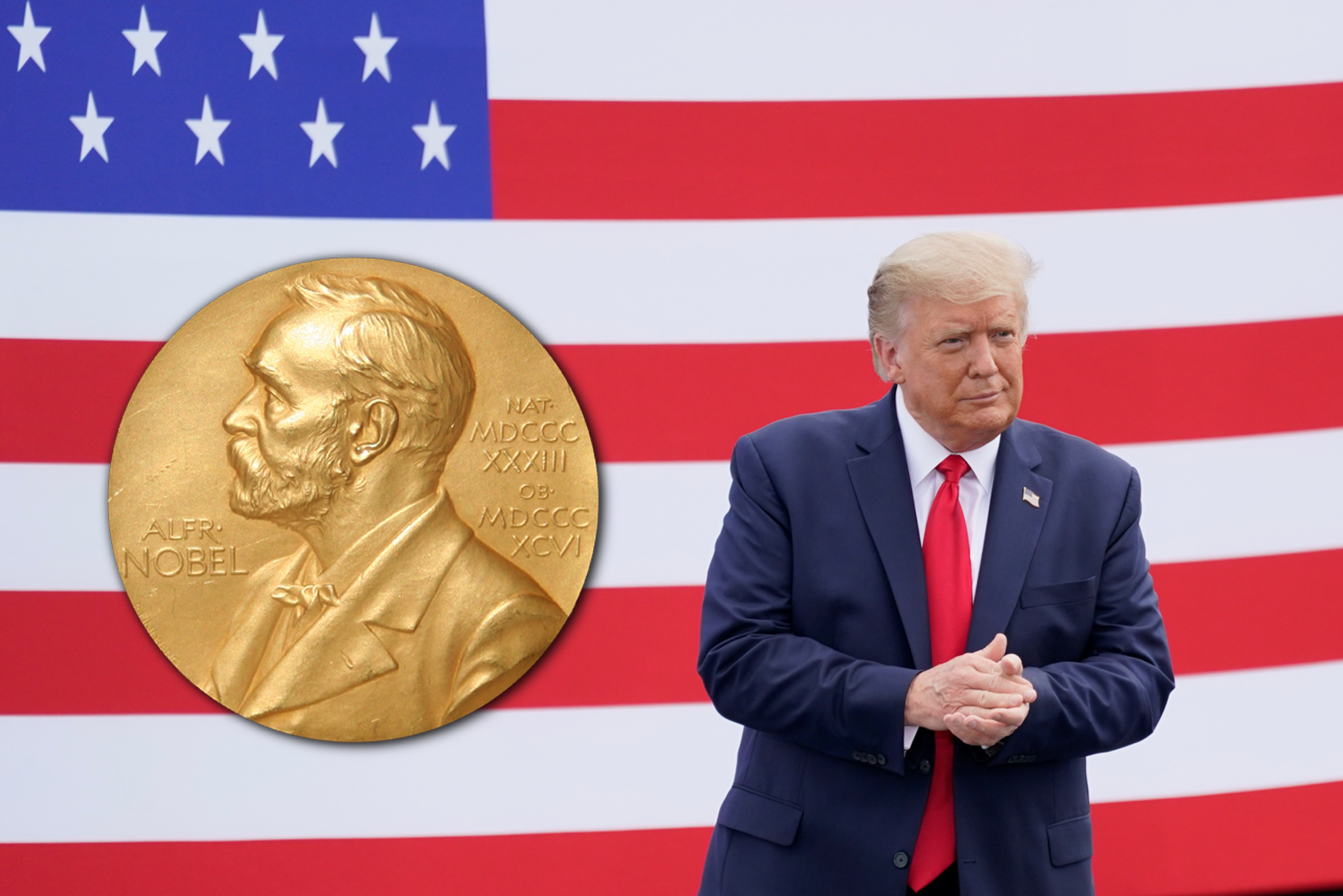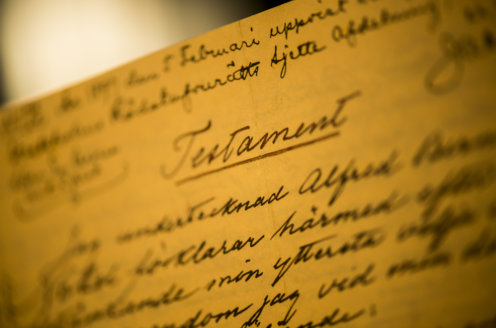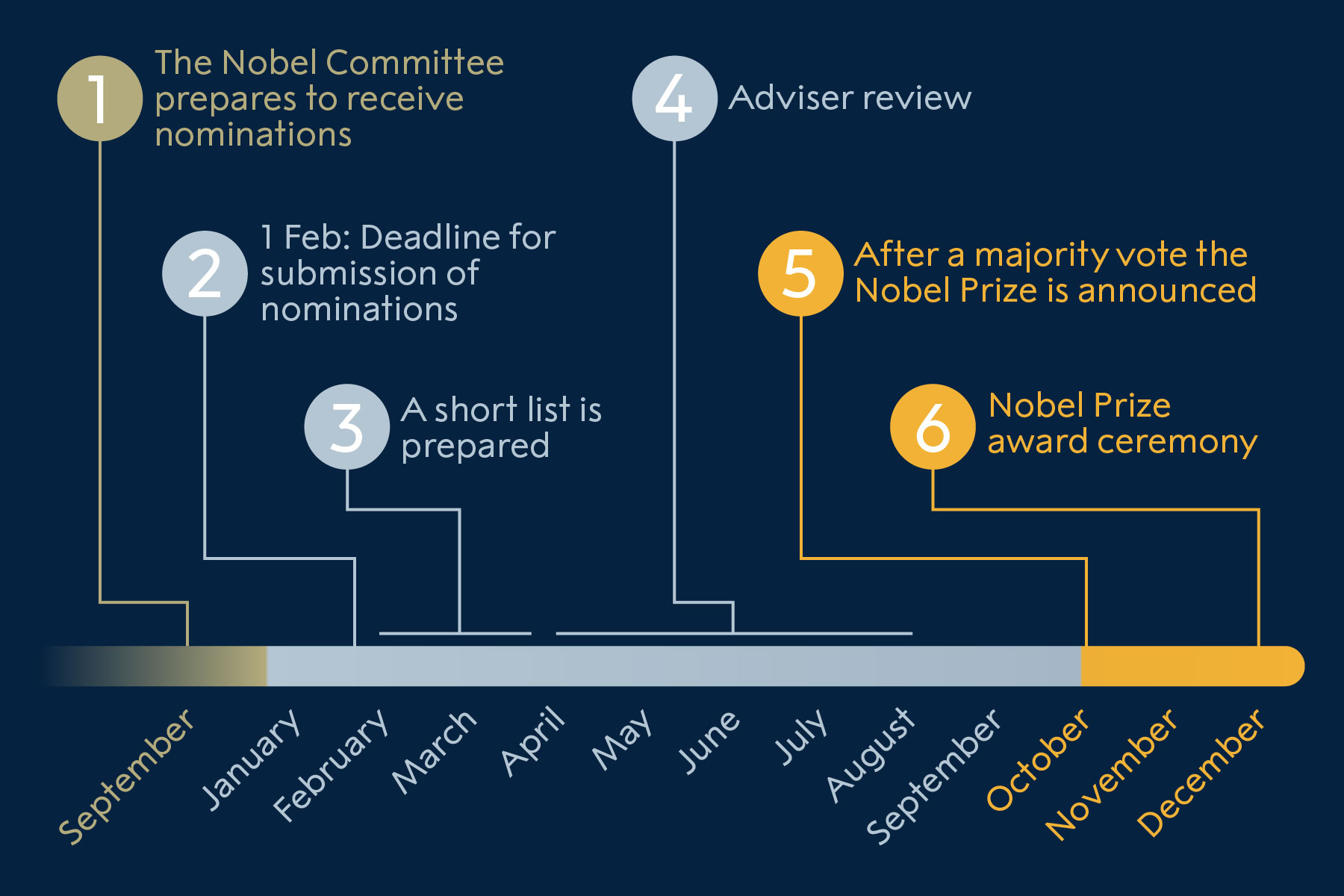by Allison Lee

When I woke up one morning earlier this September, I spent half an hour in bed scrolling my phone for the latest updates. The news of Donald Trump being nominated for the 2021 Nobel Peace Prize struck me as a meme, so I brushed it off and went ahead with my day.
However, later in the day, more established publications began commenting on this news, which told me straight away that this was no blooper—Donald J. Trump’s name was actually submitted for consideration for one of the most honorable accolades in the world. And though I’ve never heard of such news, this isn’t the first time the incumbent president’s name has been submitted for the award; Trump has been nominated back in 2018 for his part in bringing reconciliation to North and South Korea.
This time, Trump was nominated by Christian Tybring-Gjedde, a right-wing Norwegian politician. His grounds for suggesting the U.S. President for the prize was based on the Israel-UAE peace deal in mid-August when the two Middle Eastern countries reached an understanding to normalize relations and Israel suspended plans to annex the West Bank.
The White House Press Secretary’s Statement regarding the matter reads as follows: “President Donald J. Trump was nominated for the 2021 Nobel Peace Prize for his leadership in brokering the Abraham Accords, bringing about the full normalization of relations between Israel and the United Arab Emirates and marking a major step toward a more peaceful Middle East. This historic diplomatic breakthrough between Israel and the United Arab Emirates is the most significant step toward peace in the Middle East in more than a quarter of a century.”
When asked why he decided to nominate Trump, Tybring-Gjedde answered: “For his merit, I think he has done more trying to create peace between nations than most other Peace Prize nominees… I am not a big Trump supporter. The committee should look at the facts and judge him on the facts—not on the way he behaves sometimes. The people who have received the Peace Prize in recent years have done much less than Donald Trump.”
Let’s go off on a tangent here. Tybring-Gjedde wants to look at cold, hard facts while selecting the representative who has done the most to bring about peace in the past year, so we will deliver. In the past nine months alone, Trump has been subjected to impeachment, incompetently handled the pandemic, unjustly tear-gassed peaceful protestors, separated thousands of families and caged children, and all in all, failed to provide for the people of his country.
In response to Tybring-Gjedde not wanting to judge Trump for the way he behaves sometimes, Trump is racist, misogynistic, and homophobic all the time; the trifecta that a president should not possess, let alone a potential recipient of the Nobel Prize.
I am in no way discrediting Trump’s efforts in the Israel-UAE peace deal, but it comes as no secret that his failures trump his successes.
Aside from Trump himself, other alleged nominees for the 2021 Peace Prize are Swedish environmental activist Greta Thunberg, New Zealand’s Prime Minister Jacinda Arden, American business magnate Bill Gates, Black Lives Matter, and the World Health Organization.
Polls have emerged for these select individuals and committees to assess the likelihood of them bringing home the Peace Prize, and shocking as it is, Trump’s odds at becoming a Nobel Laureate are higher than you think.
Since we won’t know the winner(s) of the 2021 Peace Prize until a year from now, let’s use this time to better understand the history of the Prize itself.
A History of The Nobel Prizes
When Swedish chemist Alfred Nobel signed his final will in 1895, giving the majority of his fortune to fund prizes in the fields of Literature, Peace, Chemistry, Physics, and Physiology or Medicine, he created the Nobel Prizes. (The Prize in Economic Sciences would be later created and awarded in honor of Nobel, but it would not be considered a Nobel Prize.)

The Prizes are awarded to individuals or organizations who devote their lives to a particular field of study and amount to exceeding contributions that would advance the field as a whole, or as the Foundation puts it, “those who have conferred the greatest benefit to humankind”.
The recognition has been given out on an annual basis since 1901, save for the years of the wars. Award recipients are called ‘laureates’, which pays homage to the laurel wreath presented to triumphant victors in ancient Greece competitions.
Well-known laureates of the Prize include Mother Teresa, Albert Einstein, the Curie family, Malala Yousafzai, Ivan Pavlov, Theodore Roosevelt, the Red Cross, Woodrow Wilson, Erwin Schrödinger, Winston Churchill, Ernest Hemingway, Friedrich Hayek, Nelson Mandela, Jimmy Carter, and Barack Obama. Of course, there were more accomplished professionals in their respective fields, but if we were to go through the whole list, we’d be here till daylight.
The Nomination Process

A year before the prizes are awarded, nomination inquiry forms are sent into the hands of three thousand governments, former laureates, members of the Norwegian Nobel Committee, and respected academics in each field. These individuals are then expected to submit their nominations by early February of the following year. When received, the names of the nominees are not disclosed to the public or the nominees themselves. The committee has a 50-year secrecy rule that binds them into sealing nomination records for fifty years from the prize awardance.
The list of nominees is then pushed through a selection process, where the majority vote will determine the shortlist of nominees. This is, of course, accompanied by extensive reports and reflections by experts in each field, all to determine the best-suited winner(s).
Speaking of winners, prizes can be shared among three individuals as a maximum, save for the Peace Prize, which can be received by institutions such as the Red Cross.
The Ceremony
In early October, everyone looks to Oslo and Stockholm where the Nobel laureates are announced, their hard work and achievements celebrated all around (though there have been circumstances where there were no laureates chosen for a certain field or the prize is refused by the laureate).
The official award ceremony commences on 10 December, the anniversary of Alfred Nobel’s death, in Oslo and Stockholm. The Prizes are presented in the form of a gold medal, money, and a diploma to the laureate(s), with most laureates choosing to invest the money in further research or foundations.
So, there you have it; a brief history of the Nobel Prize, the most esteemed honor one could ever hope to be awarded in his or her lifetime. While the list of nominees for the 2021 Peace Prize will only lengthen from here on out, let’s hope that the award goes to someone whose intentions are pure, someone who has gone to great lengths to secure peace for the world—in other words, someone truly worthy.